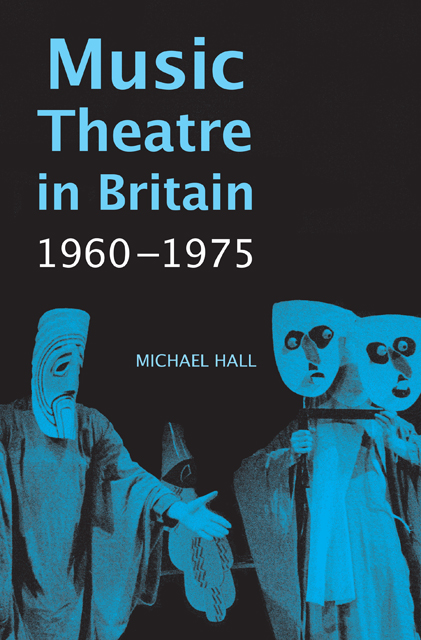7 - Maxwell Davies’s Monodramas
Published online by Cambridge University Press: 23 February 2023
Summary
Of the six music-theatre works Peter Maxwell Davies composed between 1964 and 1974, five are monodramas for a single performer and a small chamber ensemble, while the sixth, Blind Man’s Buff (1972), is for four performers and a chamber orchestra. As this differs from the other five in both topic and scoring, it will be discussed in a later chapter. The five monodramas fall into two groups. Revelation and Fall (1966), Eight Songs for a Mad King (1969) and Miss Donnithorne’s Maggot (1974) have their roots in Schoenberg’s Pierrot lunaire in that they focus on individuals who have such a distorted vision of reality that they appear to be mad. Missa super L’homme armé (1968) and Vesalii Icones (1969) have their roots in Stravinsky’s L’histoire du soldat and the plays of Brecht and they focus on a moral issue, namely the need to distinguish between the true and the false.
Behind all these works, however, lies his opera Taverner, the work that affected all his musical thinking from 1956 until he finished it in 1968, a few months before composing Eight Songs for a Mad King. The feature they have in common is their use of parody. Maxwell Davies conceived Taverner when he was a student at Manchester University. ‘I remember thinking that I would have to make a style which would last me through the next fifty years,’ he told me:
a style that would be solid enough ground to construct the edifice of a lifetime. For me the composers I met at Darmstadt when I was there had not faced the issue. By acknowledging only Webern and neglecting everyone else they were like flowers that may bloom for a short time in a vase but will not put down roots. I came to the conclusion that unlike them I would have to have a discourse that was directional if I were to survive. I would have to create a sense of progress not only from one musical idea to the next but right across the whole length of the work. I had read Schenker’s Der freie Satz and his analysis of Beethoven’s Fifth and Ninth Symphonies, and was well aware of the need for long-term thinking over a long span of time.
- Type
- Chapter
- Information
- Music Theatre in Britain, 1960–1975 , pp. 134 - 167Publisher: Boydell & BrewerPrint publication year: 2015
- 1
- Cited by



